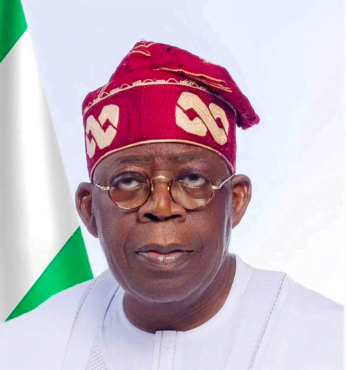Nigerian Government has spent $16 billion and failed to deliver these projects.
A country abundant in natural resources and human capital, has long been plagued by the phenomenon of abandoned projects. Despite ambitious plans and substantial investments, many initiatives have been left incomplete, leading to significant financial losses and missed opportunities for development.
below are the Top 10 abandoned Government Projects in Nigeria.
Number 10. Bayelsa Tower Hotel.
Amount Spent: 6 billion Naira.
The 18-storey five-star Tower Hotel project in Bayelsa State aimed to attract tourists and provide high-end accommodations.
The project cost initially put at 8 billion naira had to be put on hold after the contractor demanded an upward review. This is after 6 billion naira had been released.
Number 9. Abuja Millennium Tower.
Amount Spent: 34 billion naira.
The Millennium Tower and Cultural Centre project in Abuja began construction in 2006. At 170 meters, it is the tallest structure in Abuja. Despite being topped out in 2014, the project remains incomplete. The FCT Minister once promised to finish the project, but costs have ballooned from 50 billion naira to over 200 billion naira, with 34 billion naira already spent.
Number 8: Tinapa Resort.
Amount Spent: $350 Million.
The Tinapa Resort in Cross River State, designed to be a shopping and trading paradise, has fallen short of its potential. Initiated in 2005, the project was meant to transform 80,000 square meters of retail space into a bustling economic hub. However, despite $340 million spent, the resort remains largely unoccupied, a stark contrast to the vibrant center it was intended to be. This project, a legacy of former Governor Donald Duke, now lies in waste.
Number 7: Katsina Windmills.
Amount Spent: 4.4 billion naira.
The Katsina Windmill project, initiated in 2005 by former President Umaru Yar’Adua when he was governor of Katsina State, aimed to boost renewable energy and complement power projects across Nigeria. Despite over 4 billion naira spent, the project remains incomplete.
Number 6: Dredging of River Niger
Amount Spent: 34 billion naira.
The Lower River Niger Dredging Project, approved in 2011 during the Jonathan administration, aimed to improve navigability from Warri, Delta State, to Baro, Niger State. The project was allocated 47 billion naira, with 34 billion naira released to contractors. However, by 2016, the Nigerian Indigenous Ship-Owners Association (NISA) lamented the poor handling of the project, claiming no substantial dredging work had been done despite the significant funds allocated.
Number 5. Rivers State Monorail.
Amount Spent: $400 Million.
The Rivers State Monorail project, launched in 2009 under Governor Rotimi Amaechi was envisioned as a state-of-the-art, elevated transit system covering a distance of 12 kilometers. However, numerous challenges, including funding issues, political controversies, and technical difficulties, have stalled the project. By the time Governor Amaechi left office in 2015, the project was far from finished.
Number 4. Abuja CCTV Project
Amount Spent: $460 Million.
The Abuja CCTV Project, approved during President Goodluck Jonathan’s administration, aimed to install over 2,000 surveillance cameras in strategic parts of the Federal Capital to improve security.
However, the project has faced significant setbacks. An investigation by the Seventh House of Representatives revealed that the project was far from completion, with many installed cameras non-functional and essential infrastructure, such as the command-and-control center, remaining incomplete. The lack of a coherent strategy for maintenance and operation further hindered the project’s success.
Number 3. Brass LNG.
Amount Spent: $1.2 Billion
Brass LNG, an ambitious liquefied natural gas project Located on Brass Island, Bayelsa State, the facility was designed to produce up to 10 million tons of LNG per year, positioning Nigeria as a key player in the global energy market.
Despite significant investment, the project has remained in a state of limbo. Disputes over the actual amount spent have arisen, with the Nigerian National Petroleum Corporation (NNPC) estimating the expenditure at $1.2 billion. Regardless of the exact figures, Brass LNG’s failure to progress has left a considerable gap in Nigeria’s economic potential.
Number 2: Mambilla Hydro Power Plant.
Amount Spent: $5.8 Billion.
First conceived in the early 1980s, the project has faced numerous delays and setbacks. Despite multiple feasibility studies and design changes, it wasn’t until 2005 that the Nigerian government signed an agreement to move the project forward. However, bureaucratic hurdles, funding challenges, and legal disputes have continually stalled progress till date.
Number 1. Ajaokuta Steel Mills.
Amount Spent: $8 Billion.
The Ajaokuta Steel Mill, located in Kogi State, Nigeria was designed to reduce dependency on oil by fostering a robust steel industry. However, the mill, which covers over 24,000 hectares, has never been fully operational. A myriad of challenges, including political instability, mismanagement, and funding issues, stalled its completion.The Nigerian government continues to express commitment to revitalizing the Ajaokuta Steel Mill, seeking foreign investment and partnerships to finally bring the project to fruition. As of today, over $8 billion has been spent, and the project remains moribund.
Last updated on September 23rd, 2024 at 08:21 am







 Share on WhatsApp
Share on WhatsApp
 Share on Twitter
Share on Twitter
 Share on Facebook
Share on Facebook












Be the first to comment